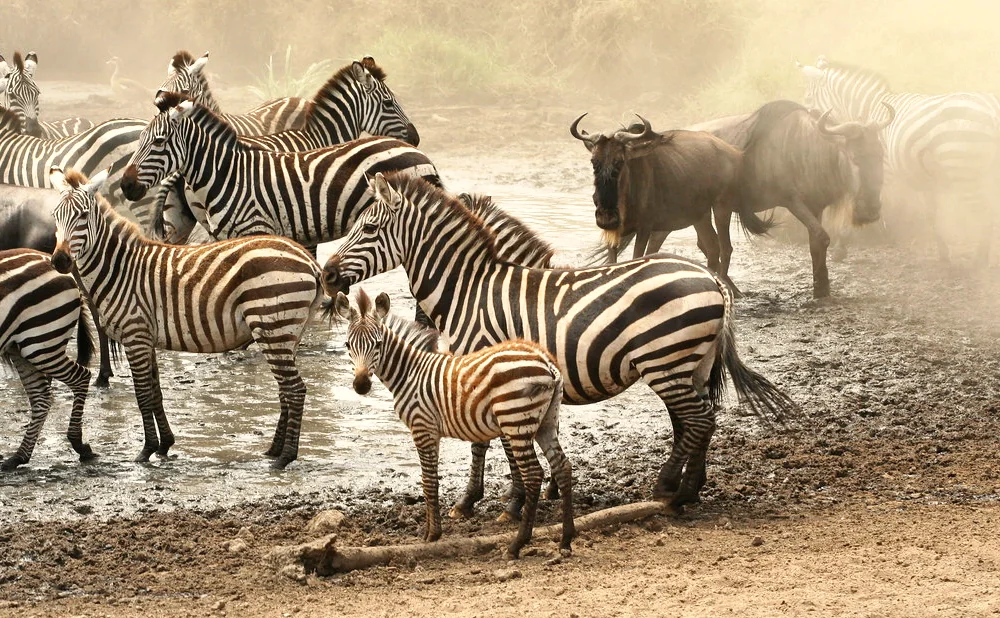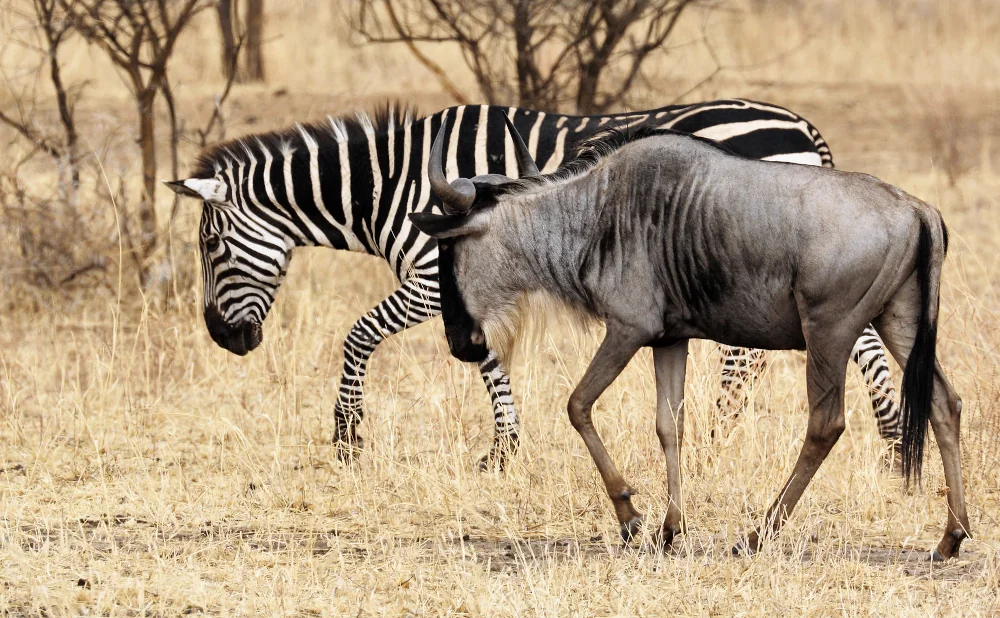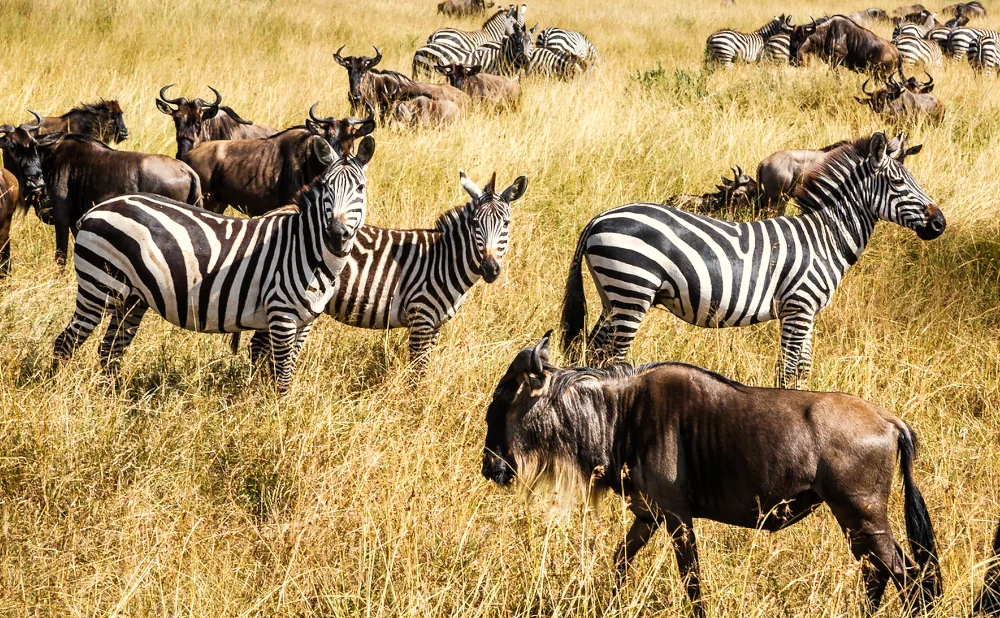what animal will a lion not attack
Lions are often seen as the king of the jungle, powerful predators that command respect and fear in the animal kingdom. Their social behavior, hunting skills, and majestic presence make them fascinating creatures. But is there any animal that a lion might choose not to attack? Let's delve into the intriguing aspects of lion behavior to uncover the truth.
Understanding Lion Behavior
To understand why a lion might refrain from attacking certain animals, it's important to first grasp some basic lion behavior traits. Lions are social animals, living in groups called prides. Each pride consists of related females, their offspring, and a few adult males. This social structure is crucial to their survival and hunting success.
Social Behavior
Lions exhibit complex social behavior that plays a significant role in their interactions with other animals. Within the pride, there is a clear hierarchy, with dominant males leading and protecting the group. This social behavior extends beyond the pride, influencing how lions interact with potential prey and competitors.
Hunting Techniques
Lions are opportunistic hunters. They typically hunt in groups, using teamwork and strategy to bring down prey. Their preferred targets are large herbivores like zebras, wildebeests, and buffaloes. However, lions are not above scavenging from other predators or hunting smaller animals when food is scarce.
Lion Mating Behavior
During mating season, lions become more territorial and aggressive. Males compete for the attention of females, leading to intense battles that can result in injuries or even death. Despite their aggressive nature, lions also exhibit nurturing behavior toward their cubs, emphasizing the complexity of their social interactions.
Animals Lions Rarely Attack
While lions are formidable predators, there are certain animals they rarely attack. This behavior can be attributed to various factors, including size, danger, and social structure.
Elephants
One of the few animals that lions generally avoid attacking is the elephant. Elephants are massive creatures with powerful defenses. Their size alone is a deterrent, but their social behavior also plays a role. Elephants live in herds and are fiercely protective of their young, making them a formidable challenge for lions.
Rhinoceroses
Similar to elephants, rhinoceroses are large and well-armed with horns that can cause significant harm to predators. Lions usually steer clear of adult rhinos, opting instead to target smaller, less dangerous prey.
Hippopotamuses
Hippos may not seem like fierce creatures, but they are responsible for more human fatalities in Africa than any other large animal. Their aggressive nature and powerful jaws make them a risky target for lions. As a result, lions typically avoid confrontations with these water-loving giants.
Interspecies Relationships
Lions' interactions with other animals are not solely based on hunting or avoidance. In some cases, lions develop unique relationships with other species.
Hyenas
Lions and hyenas are often portrayed as fierce rivals, competing for the same resources. While they do scavenge from each other and occasionally engage in violent encounters, they also exhibit a form of respect for one another's strength. Lions may choose not to attack hyenas if the risk of injury is too high.
Cheetahs and Leopards
Cheetahs and leopards are solitary hunters that often share the same habitat as lions. While lions do prey on these smaller cats, they sometimes allow them to coexist without conflict. This behavior can be attributed to the fact that cheetahs and leopards are not direct threats to the lion's dominance or food supply.
Factors Influencing a Lion's Decision Not to Attack
Several factors can influence a lion's decision not to attack a particular animal. Understanding these factors provides insight into the complex nature of lion behavior.
Risk vs. Reward
Lions weigh the potential risks and rewards of attacking a particular animal. If the risk of injury or expending too much energy outweighs the potential reward of a successful hunt, lions may choose to avoid the confrontation.
Territorial Concerns
Lions are territorial creatures. They may avoid attacking animals that are too close to the boundaries of their territory to prevent drawing the attention of rival prides or other predators.
Availability of Prey
The availability of prey can also impact a lion's decision-making. In times of abundance, lions may be more selective in their hunting, choosing easier targets. Conversely, during scarcity, they may take greater risks.
Conclusion
Lions are complex creatures with intricate social structures and behaviors that influence their interactions with other animals. While they are powerful predators, they do not indiscriminately attack all animals. Factors such as size, danger, and the social dynamics of both the lion and potential prey play significant roles in a lion's decision to attack or avoid certain animals.
Understanding these behaviors not only provides insight into the lives of lions but also highlights the delicate balance of ecosystems where these majestic creatures reside. By respecting the natural behaviors and habitats of lions and their prey, we can better appreciate the intricate web of life in the animal kingdom.











